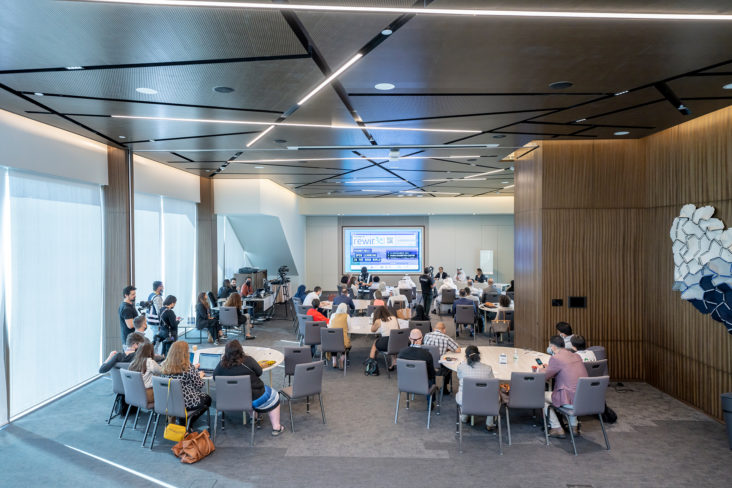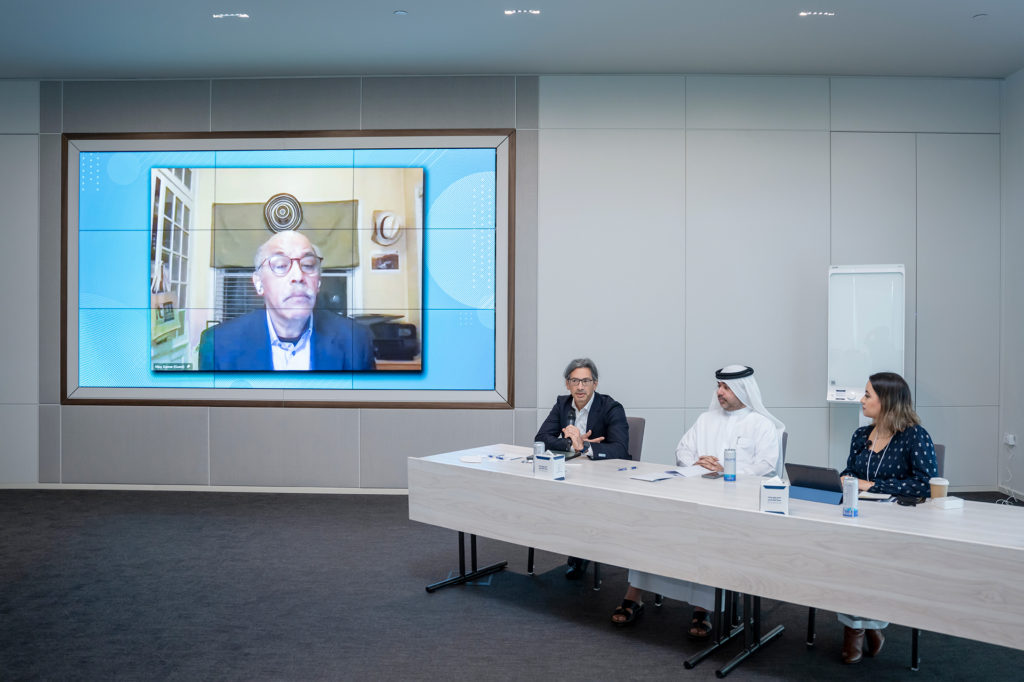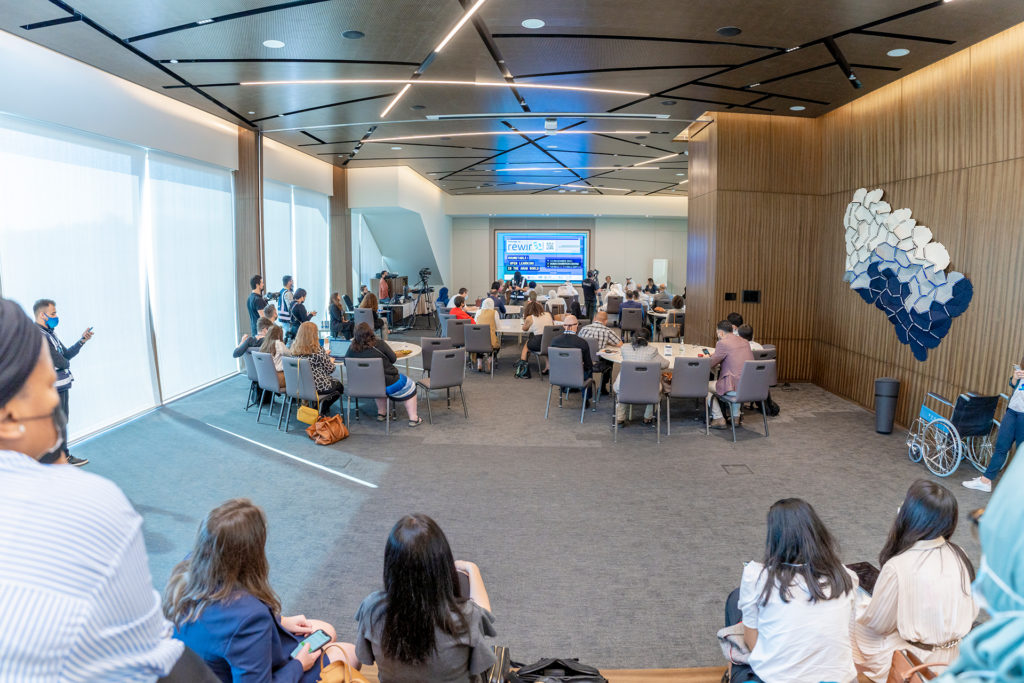Open Learning In The Arab World Takes Centre Stage At Expo 2020 RewirEd Summit

The Massachusetts Institute of Technology (MIT)’s Abdul Latif Jameel World Education Lab (J-WEL), the Abdulla Al Ghurair Foundation for Education (AGFE), the American University of Beirut, and Community Jameelhosteda roundtable meeting on December 14 at the Dubai Exhibition Centre as part of theRewirEd Summit, Expo 2020’s flagship education event. The RewirEd Summit is hosted by Dubai Cares and the United Arab Emirates (UAE) Ministry of Foreign Affairs and International Cooperation. The roundtable, held in-person and virtually with scholars and academics from global and regional public and private educational institutions and development organisations, marks a milestone in the ongoing dialogue on open learning in the region.
Open learning – the movement to dismantle barriers to education and research – can transform universities across the Arab world into engines of innovation and economic growth, the roundtable heard. With millions of refugees and displaced persons, in addition to the impact of the onset of the COVID-19 pandemic, the Arab region is faced with an urgent demand for more flexible and accessible methods of education that can meet the unique learning needs of its communities.
Despite the solutions offered by introducing open learning systems – from new technologies and approaches to learning, to accreditation and access to resources – the ecosystem remains dominated by western educational institutions with little representation from the region.
George Richards, Director of Community Jameel, said: “Community Jameel is committed to advancing open learning in the Arab world, to unlock extraordinary potential by helping more people to learn in new ways and to shape their futures. The pandemic triggered a necessary shift towards open learning, accelerating developments in more flexible education, and we hope today’s meeting can carry forward this momentum and propel open learning into universities for the benefit of all.”
Dr. Sonia Ben Jaafar, Chief Executive Officer of the Abdulla Al Ghurair Foundation for Education, said: “The pandemic exposed the limited number of fully online degrees in the region and the fact that universities and governments were not ready to embrace online education. We are now picking up the pace, with a more open-minded education sector and increased private-public sector collaborations that better align with the needs of Arab learners and their communities. At AGFE, we believe in providing access to quality higher education at scale for Arab youth in order to elevate livelihoods. This roundtable is instrumental in shaping the future of education, which will increasingly involve open-source education, zooming in on skills-based teaching and learning adapted to education and employment trends.”
The panel built on a pre-meeting discussion held on November 15 that included leading higher education institutions from Iraq, UAE, Lebanon and Palestine, representative of the diverse and unique needs of learning institutions in the Arab world. Delegates agreed that, on being required to adapt curricula to be more open during COVID-19, they realised the urgent need for their communities to develop better open resource materials.
The RewirEdSummit also highlighted other Community Jameel initiatives,including Transforming Refugee Education towards Excellence (TREE), a systems-wide teacher training programme in Jordan that uses compassion to help teachers overcome trauma and deliver effective teaching, which was showcased by Save the Children at a meeting with the Aga Khan Foundation and PLAN on December 13. On the same day, the Abdul Latif Jameel Poverty Action Lab (J-PAL) and Pratham co-hosted a panel discussion on key learnings for scaling innovative, evidence-based education programmes, highlighting the Teaching at the Right Level (TaRL) initiative in India and across Africa.




